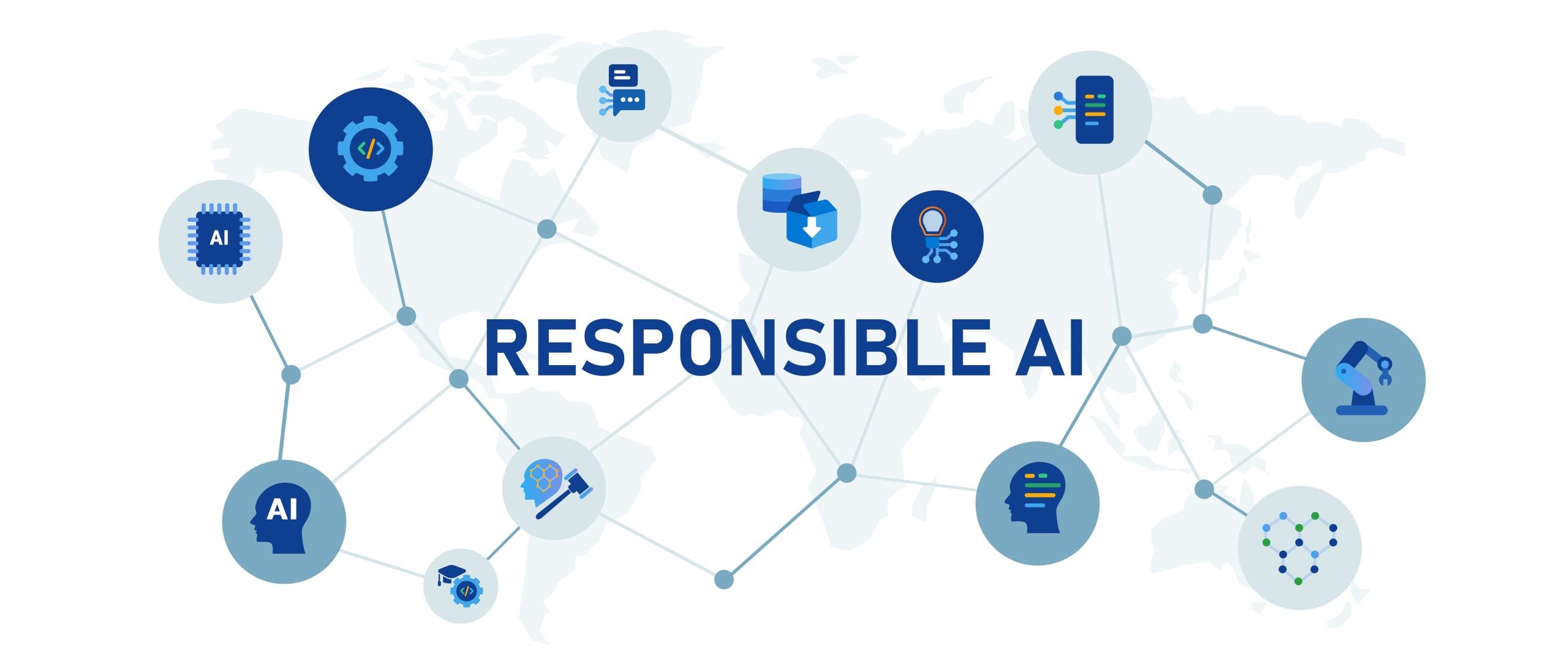AI adoption in financial services is accelerating, and with it, the magnitude of the risks being introduced. Retail banks face a uniquely complex task – deploying powerful AI tools at scale, in ways that are trusted, explainable, and compliant with the stringent regulatory environment in which they operate. Because financial services are so heavily regulated, banks already have structured governance models like the ‘three lines of defence’ – and they engage with regulators all the time.
Against this backdrop, Responsible AI (RAI) in banking is viewed not just as a moral imperative or vague ESG commitment, but as a strategic capability – one that can underpin innovation, accelerate product deployment, and safeguard corporate reputation. Far from being a barrier to faster AI adoption, it is becoming a key enabler.
Consumers are also expecting AI-driven banking services, and banks that don’t deliver these services responsibly risk losing market share.
As such, the way retail banks are approaching AI governance could become a great model for other industries, setting the blueprint for responsible AI adoption across the board.
Responsible AI explained
In the latest Evident Responsible AI in Banking report, research found that the banking industry has achieved a consensus definition of RAI, including:
- Establishing accountability for the outcomes and associated risks of AI
- Creating transparency of practices and processes in AI development to support ongoing efforts to make AI models and decision making explainable
- Anticipating evolving regulatory requirements
- Upholding company ethical commitments and operational standards by ensuring fair, unbiased and human centred AI
Consensus is the first step to achieving Responsible AI across the industry. By mapping responsible principles to responsible practices, leading banks are baking RAI into every step of the production lifecycle – from design principles, to rigorous testing, to post-deployment monitoring, to auditability of each and every risk vector.

US Tariffs are shifting - will you react or anticipate?
Don’t let policy changes catch you off guard. Stay proactive with real-time data and expert analysis.
By GlobalDataThe more banks enhance these processes, the more streamlined deploying AI use cases will become – representing a significant competitive advantage in terms of reducing current time to production.
A growing RAI workforce
The research shows that, across 50 of the world’s biggest banks, the number of employees working in RAI has risen by 41% in just 12 months, with more than 80% of the banks now employing specialised RAI talent.
This is not only a reflection of the increasing focus on RAI across major financial institutions, but also a growing appreciation of the need for individuals with more specific expertise of AI-related risks within different functions. RAI roles currently being recruited for include AI risk leads, compliance managers, ethicists, governance specialists and much more besides.
While UK and European banks are leading the charge in hiring RAI talent, driven in part by the regulatory demands of the EU AI Act, US banks still dominate in absolute numbers. Institutions like JPMorgan Chase and Capital One are setting the bar in terms of specialised teams and RAI-related research output.
Turning principles into controls
At a time when both the USA and the UK are reneging on previous commitments to prioritise AI safeguarding, it’s striking to see practically the whole of the banking field doubling-down on its commitment to RAI.
However, what separates the leaders from the laggards is their ability to translate RAI principles into operational guardrails. That means having a clear line of sight from high-level values – fairness, transparency, accountability – through to measurable controls and audit processes.
For example, several leading banks have mapped internal RAI principles against external frameworks such as ISO 42001 and the NIST AI Risk Management Framework. Others are embedding explainability tools into fraud detection and credit decisioning models, ensuring regulators (and customers) can understand how outputs are generated.
Capital One, for instance, has human-in-the-loop oversight of all AI applications involved in critical decision making, and enables AI models to learn in real-time from human contextual intelligence. Deutsche Bank is using Explainable AI to make fraud alerts interpretable and auditable. These are not just compliance measures – they’re confidence-building tools, enabling faster deployment of AI use cases across the organisation.
The need for speed and scrutiny
Digitisation has already transformed retail banking services and heightened customer expectations around things like approvals, personalisation and overall experience. AI has the potential to go further still and fundamentally reimagine what it means to be a retail bank.
Yet at the same time, customers expect their data to be protected, decisions to be fair, and channels to be secure. Balancing these expectations is the defining challenge of AI adoption.
Forward-thinking banks are addressing the need for speed and scrutiny by equipping first-line operators with “self-service” diagnostic resources. UBS’s questionnaire tool and BNY’s decision tree matrix are some emerging examples, providing a means to accelerate approval of low-risk AI use cases, while swiftly escalating high-risk applications to second-line governance teams.
This is providing the groundwork for so-called “assurance platforms” – seen at banks such as NatWest – that will allow leaders to see how compliant every AI use case is in real time. By eliminating arduous, manual review of each and every use case, banks can accelerate deployments and reduce average time to production. Embedding these automated procedures across all business units, they can achieve radical productivity gains in every direction and, crucially, gain underlying confidence in an AI system’s capabilities.
Operationalising Responsible AI
Retail banking is helping to define how RAI can be operationalised in high-stakes, highly regulated environments that impact consumers directly in their day-to-day lives. In doing so, it is setting precedents for other sectors – insurance, payments, asset and wealth management, healthcare, energy – grappling with the same tensions between innovation and accountability.
RAI is no longer a back-office function. It is a strategic capability, a differentiator, and an urgent priority as we move forward into the era of AI-first banks.
Alexandra Mousavizadeh is co-CEO and co-Founder of Evident









